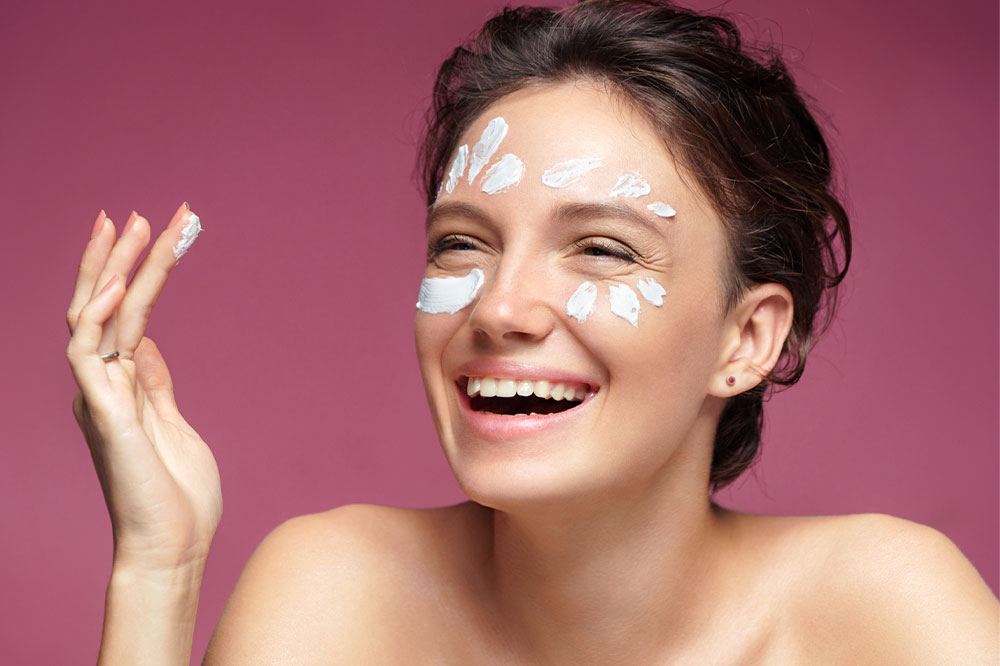6 easy tips to manage eczema flare-ups

Eczema is a common skin condition in the country. You may find the symptoms challenging to manage and alleviate without proper knowledge. The common symptoms include thick, scaly patches of raised bumps in the affected area. Understanding eczema triggers may help you handle it better. Therefore, consulting a dermatologist regarding your queries may prove beneficial. So, let’s read further about what exactly eczema is and how it can be managed by resorting to natural home remedies.
What is Eczema?
Eczema is a skin condition causing red, itchy, and long-lasting skin rash. Red patches can appear anywhere on the body during an eczema flare-up, including the feet, hands, ankles, thighs, cheeks, forehead, and neck. As anyone with a skin disease like eczema will attest, the condition is irritating, painful, and itchy. However, if you follow a healthy lifestyle, unpleasant symptoms may typically improve with time.
What eczema looks like on different skin tones
Eczema symptoms may appear different on different skin tones. For example, lighter skin tones may typically experience inflamed, red, and spotted dark pink patches, termed hyperpigmentation.
On the other hand, darker skin tones may experience violet, dark brown, or ashy grey patches. As the skin heals from eczema, it may become lighter, a condition known as hypopigmentation.
Which body parts does eczema affect?
Did you know that the eczema-affected areas of the body may be different at different ages?
Typical locations of eczema in infants and young children include:
- The face
- The exterior portion of the elbows
- Knees
Symptoms in older children and adults are visible in the following locations:
- Fingers and toes
- Arms
- The back of the knees
- Elbow folds
Even though you notice eczema symptoms as an adult, you may have had it since you were an infant or young child. This is because most symptoms emerge during the initial years of childhood. However, it rarely happens that eczema symptoms appear for the first time in adults.
Six easy tips for easing eczema:
Improve your meal plans
Gut health affects your immune system and can deteriorate after consistently consuming excessive carbohydrates, sugar, and processed foods. However, a clear relationship exists between skin diseases like eczema and gut health.
You must note the times you encounter eczema flare-ups and examine the meals you consumed before the outbreak. This will help determine if specific foods trigger skin diseases and conditions like eczema.
Therefore, increase your consumption of anti-inflammatory foods to improve gut health and prevent eczema flare-ups. These foods can include turmeric, cinnamon, leafy green vegetables, seafood, beans, and lentils.
Make simple lifestyle adjustments
Taking a quick cool or warm bath rather than a hot one can significantly reduce eczema flare-ups. For example, a hot bath leads to dry, itchy skin and aggravates skin diseases like eczema.
While washing garments, opt for natural and fragrance-free detergents. These are gentle on the skin and have a soothing effect. This is true for not just clothes but also napkins, sheets, and other accessories like gloves and scarves. Opt for natural cotton clothes instead of synthetic fibers.
Lastly, check your shampoo and soap for harsh substances, like sulfates and parabens, that may worsen the burning, itching, and redness.
Avoid activities leading to heavy perspiration
Do your workouts cause you to itch? People with skin diseases like eczema often feel an itch when they sweat, whether exercising or sleeping under heavy sheets, due to overheating. The body uses sweat as a natural cooling mechanism, but when it evaporates, the remaining dryness and salty residue can make eczema worse. So, if you are experiencing an eczema flare-up, substitute heavy workouts with low-impact exercises or yoga.
Use natural ointments
Herbal ointments can naturally moisturize your skin and alleviate symptoms of skin diseases like eczema. Ointments like comfrey, plantain, and calendula salves benefit people with eczema and related skin diseases since they act as natural moisturizers.
These ointments can be applied once or twice daily on dry skin, during the onset of an outbreak, and to treat active outbreaks. Also, consider applying 2% licorice gel as an eczema remedy.
Lastly, sunflower seed oil has highly beneficial effects on itchy skin, reducing rashes, removing blisters, and enhancing the immune system and skin barrier function.
Control the urge to scratch
Scratching is an instinctual response to an itchy rash for most people. However, people with eczema and related skin conditions should avoid scratching. A technique known as habit reversal may help here. In this technique, you determine when you are most prone to indulge in a habit (in this case, scratching) and distract yourself at those times. If, when watching TV, you find yourself scratching, try engaging your hands with a stress ball, a fidget spinner, or a coloring book.
You may also apply a cold compress or ice, as it will soothe the skin and prevent the itch. Maintaining a moisturizing regimen after washing and before bed is essential to keep the skin hydrated and supple.
Use an apple cider vinegar
Apple cider vinegar is an effective home cure for many skin diseases, including eczema. However, vinegar can injure soft tissue; therefore, it should be applied to the skin with caution. It is essential to know that vinegar is highly acidic, and so is the skin.
Skin with skin diseases and conditions like eczema is less acidic when compared to normal skin. This weakens the skin’s defenses. Hence, you can dilute apple cider vinegar to neutralize the skin’s acidity.
Wrapping up
Skin conditions like eczema may affect both kids and adults. However, these simple tips may help manage it effectively. Modifying your daily routine and introducing healthy lifestyle changes help alleviate eczema and related skin diseases. Ultimately, maintaining healthy and hydrated skin may easily control eczema symptoms.
















